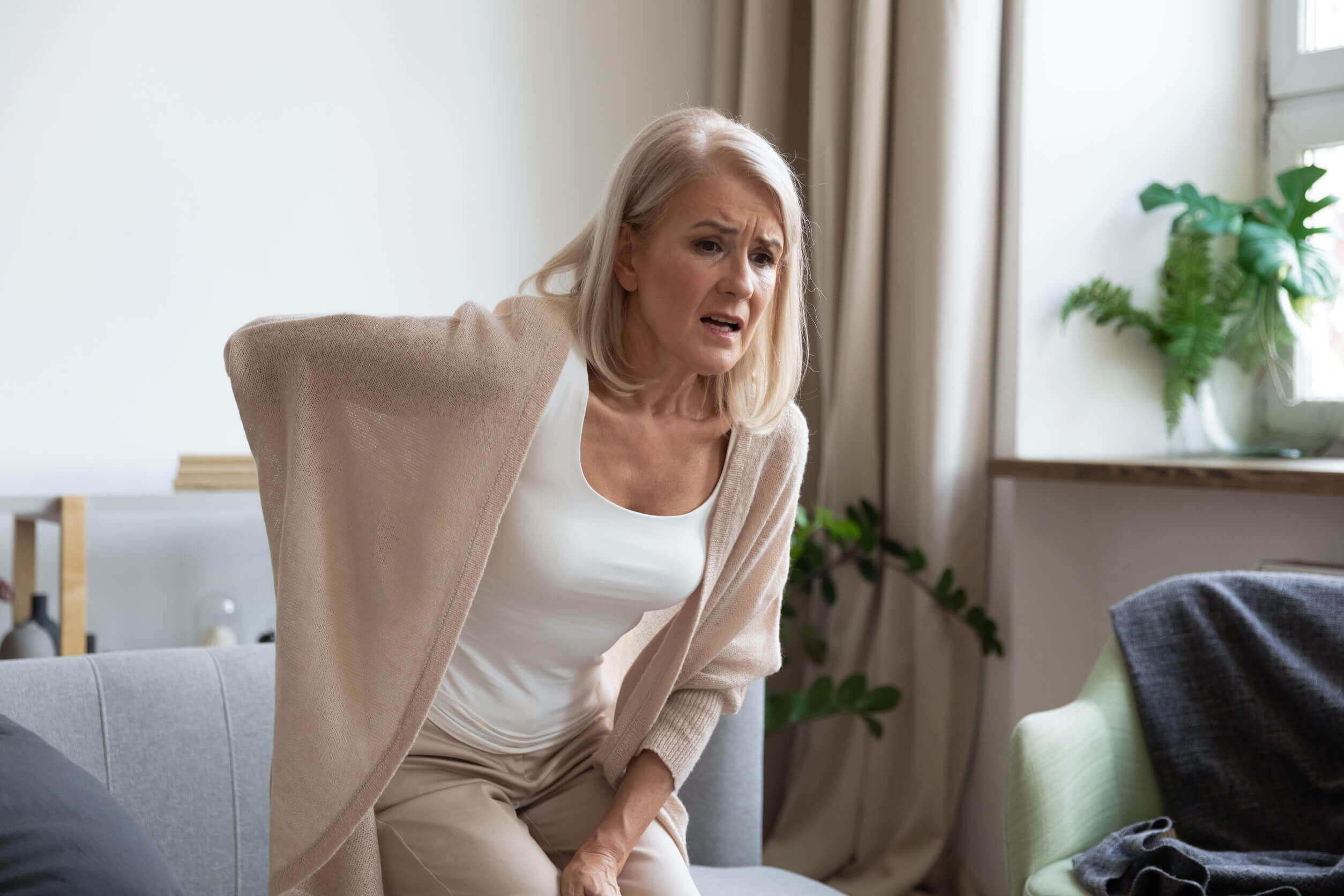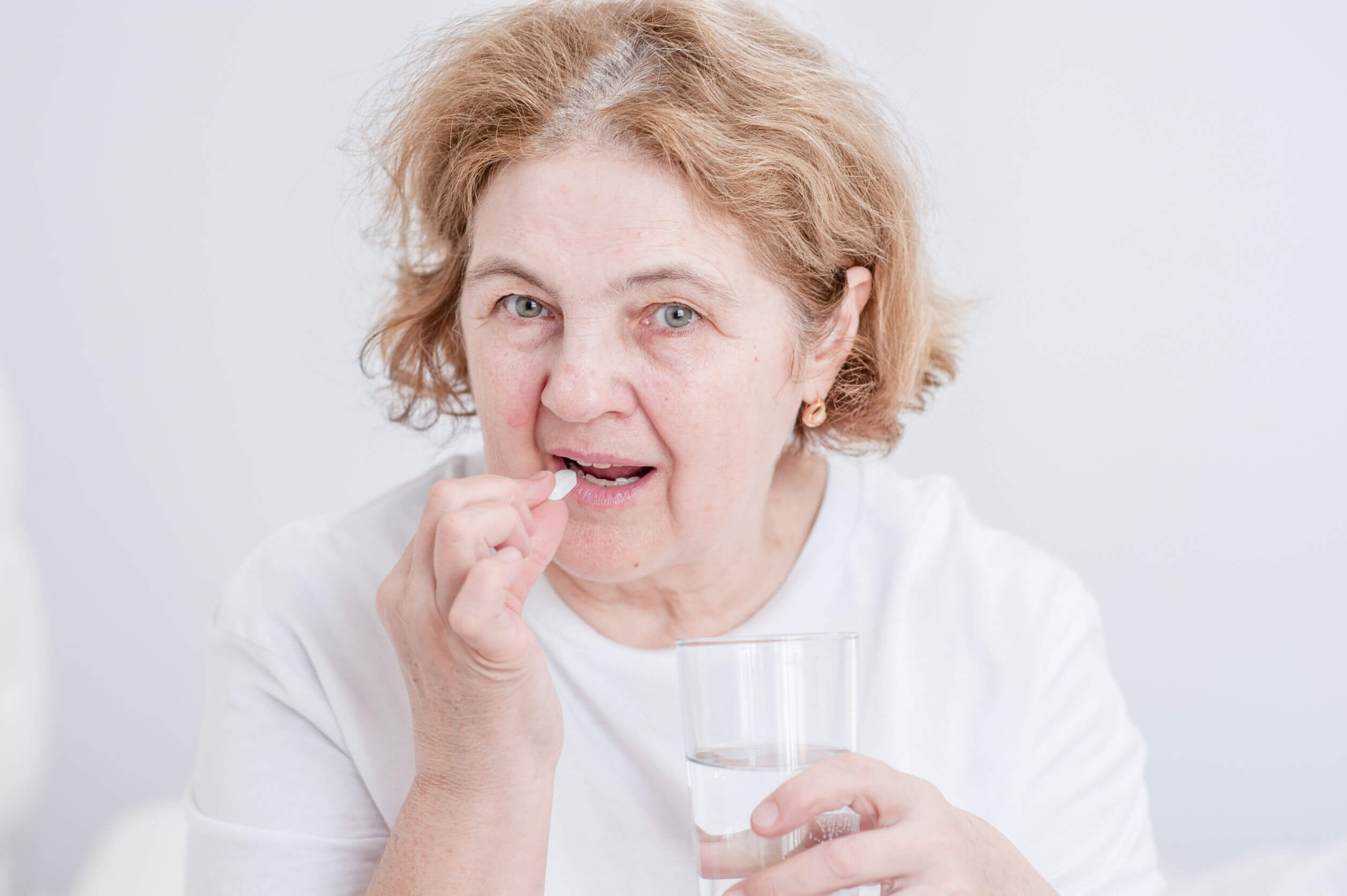Treatment for Menopause

Even if a general attempt is made to maintain good lifestyle habits to promote health and well-being, there are times when treatment for menopause is necessary. This is not only to control hot flashes, but to prevent various health problems, keep the body in good condition, and more.
Because each woman is different, the treatment must be adjusted to her needs, and the ups and downs she experiences. However, broadly speaking, this may include over-the-counter medications and some prescriptions, if necessary, in combination with other measures.
Treatment for menopause: Over-the-counter drugs

To reduce the risk of osteoporosis and osteomalacia, the doctor may authorize the consumption of vitamin D and calcium supplements, but always as part of a balanced diet, according to the body’s needs. This is a very common measure, according to experts.
Both vitamin D and calcium help maintain bone mass, but also the proper functioning of various organs and systems of the body, including muscles and nerves.
Experts tell us that it’s important to bear in mind that supplements – by themselves – are not enough to prevent or treat health problems such as osteoporosis.
Also, the study authors recall that not all women benefit from supplements in the treatment of menopause for various reasons. Therefore, before starting to take one, it’s important to consult your family doctor.
On the other hand, there are other over-the-counter products that may help you deal with other common discomforts during menopause, such as vaginal dryness and pain. Vaginal moisturizers and lubricants (applied every 1 to 3 days) are some of the most common.
Over-the-counter medications for headaches and other common ailments can also be used during menopause.
Prescriptions
Some symptoms can be difficult to cope with. This is one of the reasons why the doctor may consider prescribing certain medication.
On this topic, the MSD Manual explains that there are some antidepressants that could contribute to the relief of depression, anxiety, irritability, and hot flashes. However, none are as effective as hormone therapy.
- Some of the antidepressants that might be included in the treatment of menopause are paroxetine, desvenlafaxine, fluoxetine, sertraline, and venlafaxine.
- To treat insomnia, a sleeping pill might be considered.
Hormonal therapy
Hormone therapy can be helpful in relieving symptoms (mild to moderate in intensity) such as hot flashes, night sweats, and vaginal dryness. This isn’t systematically recommended for all women with menopause, but is carefully evaluated in the medical consultation.
Depending on the woman’s health, and evaluating the risks and benefits, the doctor may prescribe it.
While it may provide benefits, it isn’t without its increased risk for more serious health problems in some cases. For example, it could be contraindicated in the case of breast cancer, endometrial cancer, and strokes.
Hormone therapy can include estrogens, a progestin, or both. There’s a wide variety of formulations and concentrations.
Non-hormonal treatment

If the woman is unable or unwilling to take hormone therapy, the doctor may suggest some non-hormonal treatment options. These may include antidepressant medications (to relieve hot flashes), selective estrogen modulators, and clonidine (also to relieve hot flashes and improve sleep quality).
Treatment with dehydroepiandrosterone appears promising in terms of alleviating some symptoms of menopause, however, evidence is still lacking to confirm its benefits. For now, experts consider that it could be useful to promote well-being, but always as part of an appropriate therapeutic strategy.
If you’re about to reach menopause or are already going through it and want to stay healthy, don’t hesitate to consult your doctor. A good strategy from the first moment can contribute greatly to your well-being.
Even if a general attempt is made to maintain good lifestyle habits to promote health and well-being, there are times when treatment for menopause is necessary. This is not only to control hot flashes, but to prevent various health problems, keep the body in good condition, and more.
Because each woman is different, the treatment must be adjusted to her needs, and the ups and downs she experiences. However, broadly speaking, this may include over-the-counter medications and some prescriptions, if necessary, in combination with other measures.
Treatment for menopause: Over-the-counter drugs

To reduce the risk of osteoporosis and osteomalacia, the doctor may authorize the consumption of vitamin D and calcium supplements, but always as part of a balanced diet, according to the body’s needs. This is a very common measure, according to experts.
Both vitamin D and calcium help maintain bone mass, but also the proper functioning of various organs and systems of the body, including muscles and nerves.
Experts tell us that it’s important to bear in mind that supplements – by themselves – are not enough to prevent or treat health problems such as osteoporosis.
Also, the study authors recall that not all women benefit from supplements in the treatment of menopause for various reasons. Therefore, before starting to take one, it’s important to consult your family doctor.
On the other hand, there are other over-the-counter products that may help you deal with other common discomforts during menopause, such as vaginal dryness and pain. Vaginal moisturizers and lubricants (applied every 1 to 3 days) are some of the most common.
Over-the-counter medications for headaches and other common ailments can also be used during menopause.
Prescriptions
Some symptoms can be difficult to cope with. This is one of the reasons why the doctor may consider prescribing certain medication.
On this topic, the MSD Manual explains that there are some antidepressants that could contribute to the relief of depression, anxiety, irritability, and hot flashes. However, none are as effective as hormone therapy.
- Some of the antidepressants that might be included in the treatment of menopause are paroxetine, desvenlafaxine, fluoxetine, sertraline, and venlafaxine.
- To treat insomnia, a sleeping pill might be considered.
Hormonal therapy
Hormone therapy can be helpful in relieving symptoms (mild to moderate in intensity) such as hot flashes, night sweats, and vaginal dryness. This isn’t systematically recommended for all women with menopause, but is carefully evaluated in the medical consultation.
Depending on the woman’s health, and evaluating the risks and benefits, the doctor may prescribe it.
While it may provide benefits, it isn’t without its increased risk for more serious health problems in some cases. For example, it could be contraindicated in the case of breast cancer, endometrial cancer, and strokes.
Hormone therapy can include estrogens, a progestin, or both. There’s a wide variety of formulations and concentrations.
Non-hormonal treatment

If the woman is unable or unwilling to take hormone therapy, the doctor may suggest some non-hormonal treatment options. These may include antidepressant medications (to relieve hot flashes), selective estrogen modulators, and clonidine (also to relieve hot flashes and improve sleep quality).
Treatment with dehydroepiandrosterone appears promising in terms of alleviating some symptoms of menopause, however, evidence is still lacking to confirm its benefits. For now, experts consider that it could be useful to promote well-being, but always as part of an appropriate therapeutic strategy.
If you’re about to reach menopause or are already going through it and want to stay healthy, don’t hesitate to consult your doctor. A good strategy from the first moment can contribute greatly to your well-being.
-
Aguilera, J.R., P. Garza Ríos, and A. Sánchez Zepeda. 2015. “Calcio y Vitamina D En La Paciente Climatérica.” Perinatología y Reproducción Humana 29 (2): 83–87. https://doi.org/10.1016/j.rprh.2015.01.002.
-
García, Irene. n.d. “Vitamina D y Menopausia.” Instituto de La Menopausia. Accessed June 9, 2021. https://www.institutodelamenopausia.com/divulgacion/consejos/alimentacion/vitamina-d-y-menopausia.
-
Pinkerton, JoAnn. 2019. “Menopausia – Salud Femenina.” Manual MSD Versión Para Público General. 2019. https://www.msdmanuals.com/es/hogar/salud-femenina/menopausia/menopausia?query=Menopausia.
-
“¿Qué Es La Menopausia?” n.d. National Institute on Aging. Accessed June 9, 2021. https://www.nia.nih.gov/espanol/que-es-la-menopausia.
Este texto se ofrece únicamente con propósitos informativos y no reemplaza la consulta con un profesional. Ante dudas, consulta a tu especialista.







